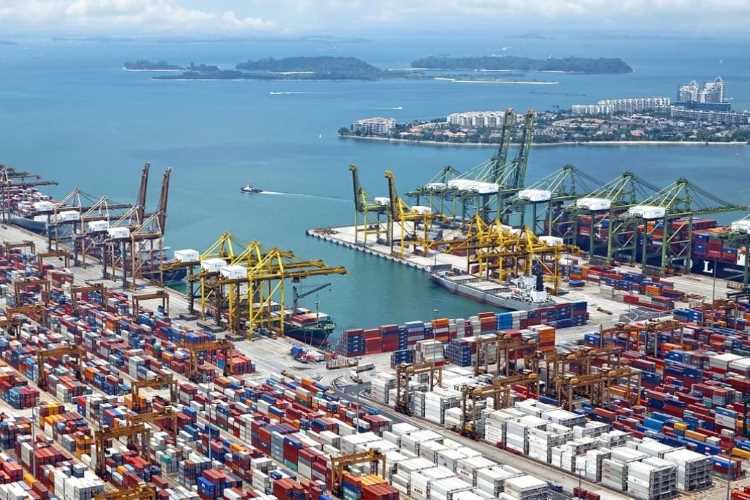The Indo-Pacific Economic Framework, an initiative of monumental significance in the Indo-Pacific region, has reached a pivotal stage. The San Francisco round of negotiations of IPEF concluded on November 14, 2023, marking the completion of three out of the four key pillars — supply chain resilience, clean economy, and fair economy. India which opted out of the trade pillar can consider its negotiation phase as complete.
India’s decision to opt out of the trade pillar in September 2022 is a calculated move reflecting its desire to maintain regulatory autonomy. This is particularly evident in areas like digital trade and labour where India seeks to preserve its policy making independence. The strategic withdrawal highlights India’s pragmatic approach towards international commitments, balancing its domestic interests against the backdrop of global economic integration.
GTRI, a Delhi-based think tank, has come up with a report, analysing the nuances of India’s strategic decision-making in this context and the broader implications of IPEF on global trade dynamics.
READ I Slowing FDI inflows: India needs to simplify regulations, cut red tape
Global impact of IPEF
The IPEF, spearheaded by the United States, has 14 partner countries, collectively contributing a significant portion of the global GDP and trade. India’s involvement in the IPEF underscores its pivotal role in shaping regional economic dynamics. The country’s participation and decisions within the IPEF framework are not just about economic policies but also about asserting its stance in the global economic order.
India’s widening trade deficit
As India enters the phase of domestic consultations and legal reviews, there is a focus on ensuring that new commitments align with its national interests. This involves a meticulous examination of agreements in areas like clean economy commitments, labour standards, and agricultural policies. India faces the challenge of balancing its international commitments with domestic priorities, such as maintaining policy autonomy in export restrictions and aligning with OECD standards in digital trade and labour sectors.
Pillar-specific challenges for India
Clean economy: India must tread carefully in its commitments, particularly regarding non-derogation clauses and minimum standards for clean energy products. There is a need to balance sustainability goals with economic and labour realities, ensuring that transitioning to a low-carbon economy does not come at the cost of job creation and economic stability.
Fair economy: India’s emphasis on maintaining its policy space and tax revenue generation abilities is crucial. The country must navigate labour standards and anti-corruption obligations in a way that aligns with its socio-economic context, avoiding external impositions that may not be suitable for its unique landscape.
Supply chain resilience: India should be cautious about commitments that could restrict its policy autonomy, especially concerning export restrictions and taxes. The country needs to prioritise its domestic needs while engaging in international cooperation.
Trade pillar: India’s decision to stay out of the trade pillar aligns with its strategy to retain regulatory autonomy. It is crucial that India continues to develop domestic rules and standards to avoid external pressures in areas like digital trade and labour.
Strategic impact on India
India’s decision to opt out of the trade pillar of the IPEF could have implications for its export competitiveness. While the country has benefited from preferential access to certain markets through bilateral and regional trade agreements, exclusion from the IPEF could potentially reduce its access to larger and more lucrative markets. This could make it more challenging for Indian exporters to compete with their counterparts in other IPEF member countries.
India faces a delicate balancing act in its negotiations with IPEF partners. On the one hand, the country needs to protect its domestic interests and policy autonomy, particularly in areas such as data privacy, labour standards, and intellectual property rights. On the other hand, India also needs to be mindful of its global commitments and the potential benefits of aligning its policies with those of other IPEF members. Finding the right balance will be crucial in ensuring that India’s participation in the IPEF is mutually beneficial.
The country’s involvement in the IPEF underscores its growing role as a regional economic power. The country’s large and growing economy, coupled with its strategic location, makes it an indispensable partner for any economic framework in the Indo-Pacific region. By engaging with the IPEF, India has an opportunity to further strengthen its economic ties with its neighbours and assert its leadership in shaping the regional economic architecture.
India’s journey in the IPEF negotiations is a testament to its strategic foresight. As the framework progresses towards finalisation, India’s focus on safeguarding its national interests while engaging in meaningful international cooperation is more important than ever. The country’s ability to balance domestic policy robustness with negotiating skills will be key in navigating the complex landscape of multilateral negotiations and in shaping its future economic trajectory.

